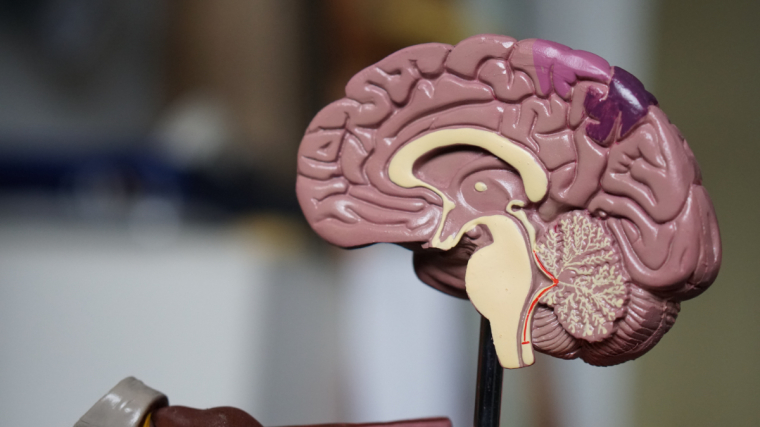Doctor details ethical parameters of brain-reading technology

Amid an increasing Big Tech push to implant devices into the human brain, a Christian neurology doctor has detailed the ethical parameters of mind-reading technology that companies like Facebook seek to utilize.
Dr. Travis Losey, the vice-chair of the department of neurology and co-director of the Comprehensive Epilepsy Center at Loma Linda University in southern California, said in an interview with The Christian Post that when it comes to the use of brain interface technology, the purpose should be to heal something that was harmed by disease or a disorder.
“The core ethical issue with the brain-computer interface is similar to issues with medication,” he offered. “I think it’s only ethical to use medications when they are being used to restore function that has been lost or affected by a disease. The same principles would apply to brain-computer interfaces.”
In a December company meeting with Facebook founder and CEO Mark Zuckerberg and other top executives of the social media giant, Facebook Chief Technology Officer Mike Schroepfer previewed a sensor device he claimed can read “neural signals coming from my brain, down my spinal cord along my arm, to my wrist.”
The social media executive was heard on leaked audio footage talking about how the new device can read brain activity, the latest in moves to merge digital technology and humans.
According to Schroepfer, the sensor could be used for typing, holding virtual objects or controlling characters in a video game.
“We all get the privilege of seeing the future because we are making it,” he was quoted as saying by BuzzFeed News.
Schroepfer’s comments are the latest development in Facebook’s quest to produce a brain-reading device. In 2017, the company’s now-defunct research lab announced plans to produce a “brain mouse” that would allow users to control augmented reality components with a noninvasive brain interface.
In 2019, Facebook purchased CTRL-Labs, a neural interface startup company, to join Facebook Reality Labs, its augmented and virtual reality arm.
CTRL-Labs developed an experimental wristband that purports to give computer users the ability to operate the machines by thinking. The purpose of Facebook’s acquisition of CTRL-Labs is to be able to “build this kind of technology, at scale, and get it into consumer products faster.”
Yet more broadly, a key question remains whether technology researchers will be able to convince regulators and society that humans should be allowed to be wired to machines in this way.
Losey told CP that three generations of these devices exist.
The first of which, he said, was developed to treat diseases like Parkinson’s, where the computer would stimulate the brain all the time to restore the normal balance of function.
The second generation was developed for conditions like epilepsy, where the technology detects the seizure pattern and stimulates the brain to interrupt that pattern.
“Those devices have been shown to be extremely effective for many of our patients and are allowing them to do things they weren’t able to before, like going back to work and driving,” the neurologist detailed. “They make a big difference in allowing a person to resume their normal activities.”
The third generation of devices, which are still under development, is intended to help those who have suffered strokes and spinal cord injuries. The devices read the signal the brain is trying to send and then use the computer to replace the lost function, Losey described.
“One area where it’s hard to say what Elon Musk is doing as his groups hasn’t published a lot. But the little bit that they have is aiming at the third thrust, which is restoring normal function,” Losey said. “So if that turns out to be what they do, I would applaud. Once we start talking about futurists, it sort of goes into science fiction a little bit, so it’s hard to say tangibly what’s practical and what isn’t.”
Asked about how Christians should think about the lofty topic of neuroethics in light of the rapid speed of technological advances and emerging ethical quandaries, the doctor said that there is no higher calling for a Christian than to help people affected by disease. He said believers should enter the field to ensure that these technologies are used appropriately.
Losey added that Christians should engage the National Institutes of Health, which oversees the use of these neurological devices.
According to a 2019 CNET report, Musk’s Neuralink startup used “sewing machine-like technology this year to drill small holes into brains and insert super-slender electrodes called threads, steering clear of blood vessels as they go.”
Neuralink was reportedly designing its electrodes to not only “read” from neural activity but “write” signals into the brain, amid scientists stating goals of restoring senses like touch or vision.
Musk said that the technology was placed inside a monkey’s brain and that the animal was able to control a computer through its thoughts. He aspired to have it implanted in a human being by the end of the year, though receiving the approval to do so from the Food & Drug Administration “is quite difficult,” he noted.
“Even in a benign [artificial intelligence] scenario, we will be left behind. Hopefully, it is a benign scenario” in which superintelligent AIs surpass but don’t wipe humans out, Musk said.
“With a high-bandwidth brain-machine interface, I think we can go along for the ride and effectively have the option of merging with AI,” Musk is quoted as saying.
In a 2018 interview with CP, neuroethics scholar Fabrice Jotterand warned against saying all technology or artificial intelligence is inherently bad and that it is a mistake to conflate AI with transhumanism.
But concerning transhumanism, whose proponents push the merging of computer technology with the human brain, Jotterand argues that it teaches that “the body is totally irrelevant to our identity as a human being” and “becomes something you can manipulate at will and doesn’t have any normative stand in defining who we are.”
